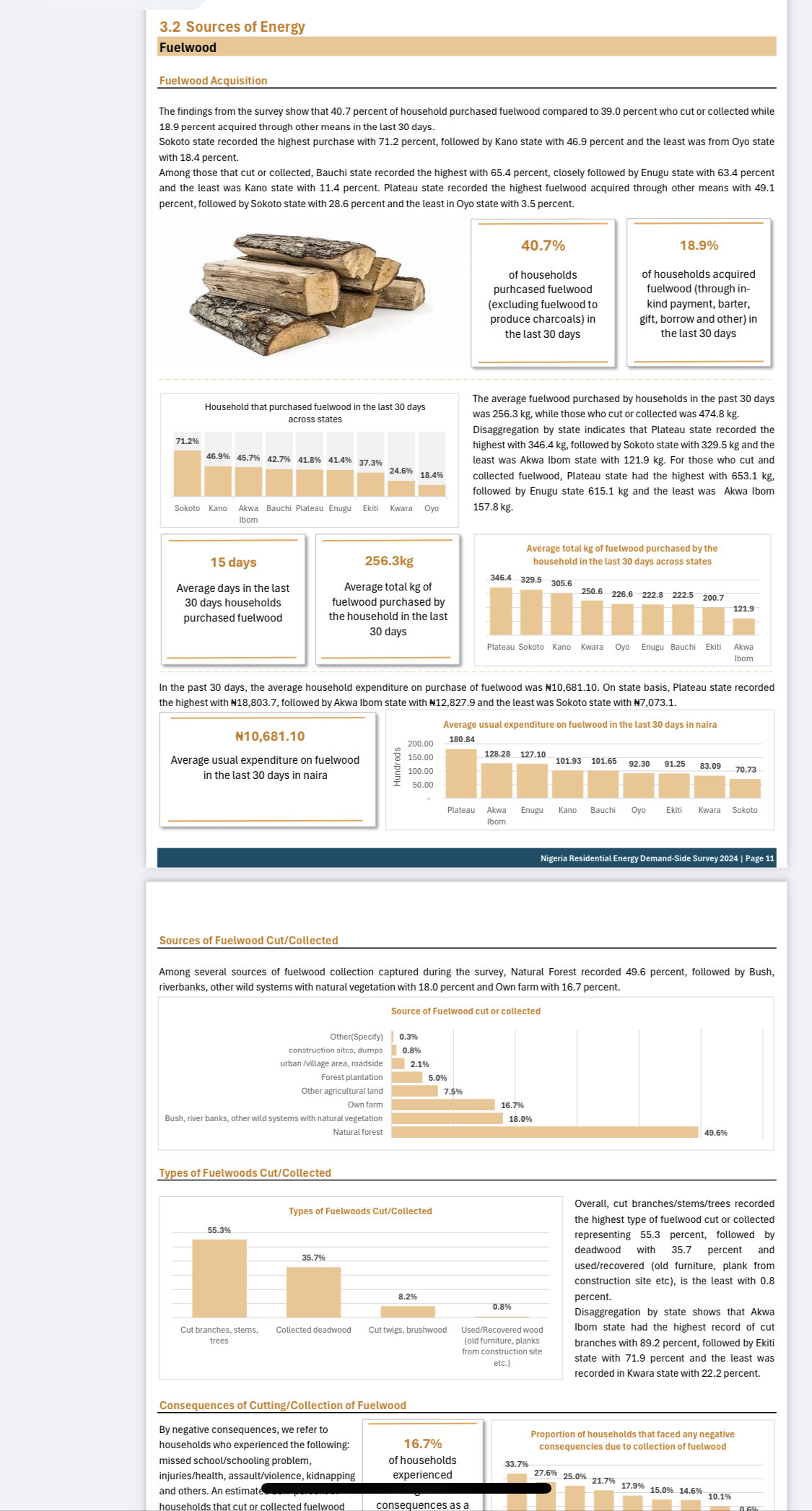
The price of gas stood at N1500/kg as of the time of filing this report.
A SaharaReporters’ review of the 2024 Nigeria Residential Energy Demand Side Report, has shown that Nigerians are tilting towards the use of charcoal and firewood amid rising cost of cooking gas under President Bola Tinubu’s administration.
According to the report released by the National Bureau of Statistics (NBS), the survey covered Akwa Ibom, Bauchi, Ekiti, Oyo, Enugu, Kwara, Plateau, Kano, and Sokoto states.
The price of gas stood at N1500/kg as of the time of filing this report.
According to the report, a total number of 63.7 million households were surveyed. Of this number 40.7% of the households purchased firewood, with an average expenditure of N10,681, the firewood is collected from sources like farm, forest plantation, natural forest.
It was noted that this development exposed 16.7% of households to missed schools/schooling problem, injuries/health, assault/violence, kidnapping.
Bauchi state recorded the highest use of firewood with 91% households. In Sokoto State, 77.8% of households use firewood.
Of the data reviewed, 21.6% of households purchased charcoal.
The survey findings show that 22.0 percent of households reported using 117.0 kg of charcoal for either domestic, agricultural, commercial, cultural or religious purposes across the nine (9) states surveyed.

State level analysis shows that Kwara state was 47.4 percent, followed by Oyo state with 40.9 percent and the lowest was Akwa Ibom state with 1.8 percent. In addition, further analysis by quantity reveals that Sokoto state reported the highest with 315.4 kg, followed by Akwa Ibom state with 146.7 kg while the least was reported by Bauchi state (56.0 kg).
Some of the households representing 11.3% use agricultural residues and garbage plastics.
A review of the report shows that 19.4% use cooking gas.
“The average monthly expenditure on LPG across the nine (9) states in the past 30 days prior to the survey day was ₦10,239.7. Analysis across the state indicates that Sokoto state spent the highest amount with ₦12,439.3, followed by Enugu state (₦11,852.2) while Ekiti state spent the lowest amount (₦8,213.5),” the report reads.